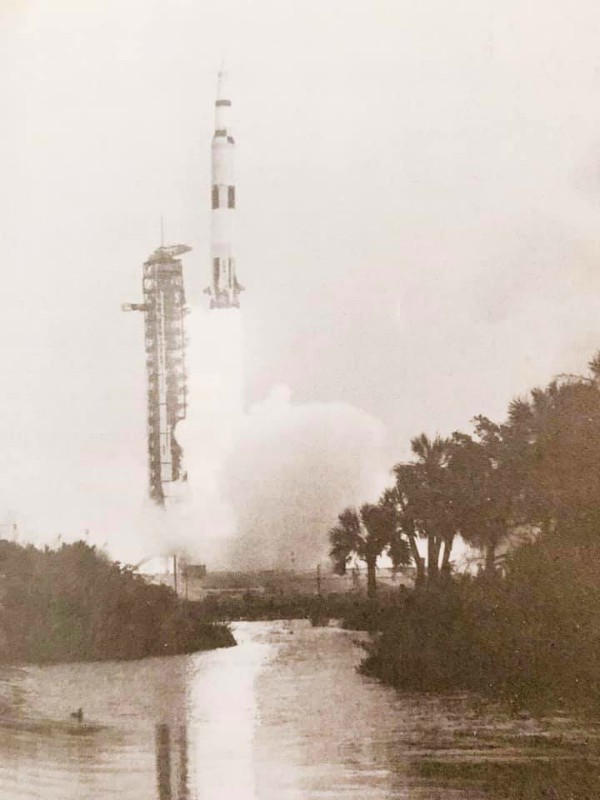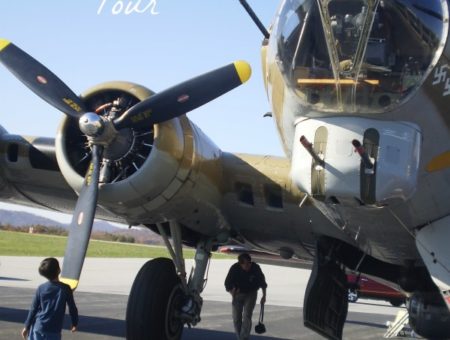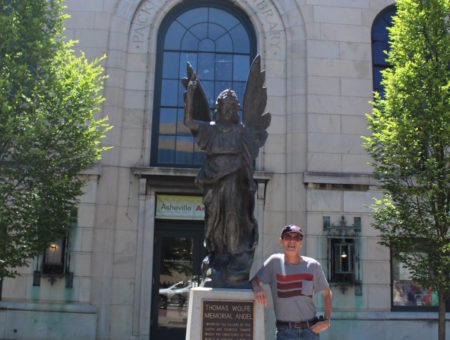Generic words spoken prior to each firing of a manned space mission, beginning with Alan Shepard’s Mercury flight of May 5, 1961, becoming the first American to tread past the boundaries of our atmospheric existence. Though Shepard did not go into orbit – first accomplished by John Glenn’s February 20, 1962, airborne excursion – the first step had been made on the promise President Kennedy was to make just three weeks after Shepard’s flight that the United States could put a man on the Moon and return him safely before the end of the decade. And here we are now, on the eve of celebrating the 50th anniversary of that historic accomplishment that was the culmination of the Cold War “Race to Space.”
Unfortunately, President Kennedy was not to see his words come true. But over the following eight years, the Mercury Program graduated to the Gemini program to be followed by the Apollo Program, each step leading onward to one of the greatest scientific and engineering accomplishments ever achieved by humankind. The technological world we live in today had its genesis in this era, created by the intellectual vision of a team of not only dreamers, but doers.

Apollo 1
The Apollo Program began, however, in the first tragedy to befall our astronauts, the Apollo 1 fire, costing the lives of the three crew members, Gus Grissom, Ed White and Roger Chaffee. Ironically, they perished not in space, but sitting atop the launch pad during a test rehearsal of their mission when there was an interior fire in the capsule, leading to major changes in the capsule which was then determined to most likely have been incapable of performing its mission, which would have most likely led to their deaths, anyway, if it had been launched as was. This event occurred on January 27, 1967, a little less than a month before its scheduled launch date.
Apollo 13
The Apollo Program had a second near-tragedy on Apollo 13. The commander of this mission, Jim Lovell, wrote a book telling this story, which was then made into the movie by the same name. But Lovell began this book recounting the story of the Apollo 1 crew and the events of the disaster.
Apollo 8
Prior to his Apollo 13 mission, Lovell was a crew member of Apollo 8, the first men to ever leave the gravitational pull of the Earth and the first ones to ever orbit the Moon. And it was on this mission that the crew were the first ever humans to see an Earthrise, the Earth rising over the horizon of the moon as they orbited. This being a Christmas Eve, each crewman read a section of the Biblical creation story from the book of Genesis, wishing the entire world a Merry Christmas.
Apollo 11
But the ultimate Apollo mission was that of Apollo 11 which blasted off on July 16, 1969, arriving in lunar orbit at 12:21 PM on July 19. Following 30 orbits, at 12:44 PM, July 20, Lunar Excursion Module Eagle separated from Command Module Colombia, landing on the Moon’s surface at 3:17 PM with only 25 seconds of fuel left. At that moment, the first famous quote of the mission was sent by mission commander Neil Armstrong: “Houston, Tranquility base here. The Eagle has landed.”
After making necessary preparations, Armstrong left the safety of the LEM (Lunar Excursion Module) and made his way down the ladder. At that moment, the largest television audience ever, an estimated 600 million, were watching. Then at exactly 9:56:15 PM, July 20, 1969, he imprinted his foot on the Moon’s surface and uttered the second famous quote of the mission: “That’s one small step for [a] man, one giant leap for mankind.” There’s been questions whether he said “a” man, thus subsequent printed versions of the quote included the “a” in square brackets. Armstrong later said he believed he said “for a man”.
Later explanations for the absence of the “a” may be that his mid-western accent caused him to slur the words “for a”; another is the intermittent nature of the audio and video links to Earth, and recent digital analysis of the tape claims to reveal the “a” may have been spoken but obscured by static.
With that, though, the first half of President Kennedy’s promise had been fulfilled. The second half would be returning the crew safely home to Earth. But first, Armstrong’s companion Buzz Aldrin joined him on the Moon’s surface, with another famous quote: “Magnificent desolation.” But after 2 1/2 hours of moon walking, they reentered the Eagle and after spending 21 1⁄2 hours on the lunar surface they ascended and rejoined Columbia and began the journey homeward, splashing down in the Pacific July 24 at 05:44 local time. Thus ended the greatest adventure man had ever embarked on.
And I actually got to see an Apollo liftoff, that being the final one to ever fly, the one for the Apollo–Soyuz Test Project. It took to the sky on July 15,1975 and docked with the Russian Soyuz module on July 17. This was the first ever U.S. and Soviet Union venture in space, practicing the policy of détente being pursued by the two superpowers. This mission put an end to the Space race that had started in 1957 with the Russian’s launching of the first ever satellite, Sputnik. One of the Apollo crew members was Deke Slayton, one of the original Mercury Seven astronauts who had until the time of this flight been grounded from space flight due to having atrial fibrillation discovered before his scheduled Mercury flight.
As a kid, I followed the space race with great excitement and curiosity, and to have experienced an actual liftoff as a young man was truly a dream come true. And to this day, I still keep up with our venture into the unknowns of the far universe. And that’s where mankind’s future truly lies, for this ol’ Earth won’t be here forever. One day the Sun will either die or go super nova, for stars do eventually die, and it truly will be the end of the world. Our Sun is roughly 4.5 billion years old, roughly halfway through its estimated life cycle. So we must rely on that same curiosity and intellectual vision that led to the scientific and engineering accomplishments that got us to the Moon, for to travel the highways to new galaxies, we must learn to travel at light speed, 186,282 miles per second. Sound like something straight out of Star Trek, huh. I’d sure hate to see the fine if I ever got a ticket at that speed, but I’d sure love to fly like that! But who knows? Maybe someday, someone will. The future awaits, and only time will tell.





So neat. I just love history. We took the kids to see First Man about the moon landing, and they loved it.
And I too hope to see that movie soon.
Thinking about the possibilities in space is definitely cool. Growing up there were tons of futuristic books and movies that got everyone so excited to learn about space!
My grandson has been obsessed with space travel since he saw a documentary on the Space Station. He’s only five, but he wants to fly jets…and maybe a space ship if his mommy can come too. lol.
We have really been into history lately. That is mainly due to homeschooling but I really have taken an interest beyond the curriculum and would love to learn more, this has really made me want to learn more about something I didn’t even know I was interested in until now.
I love reading this. I am fascinated by anything about space. I find it interesting and amazing!
I loved learning more about this. Thank you so much for sharing!
Your welcome, Heather. I’m glad you enjoyed it for I love sharing things of this nature.
History is amazing and I never get bored in learning about it. Both my kids love learning about Space and are very intrigued about it. This weekend I will be taking them to the Space Expo in our City.
I live in Central Florida and the space program is dear to my heart. I loved watching the Shuttle’s blast off and sometimes I can see the rockets to the same. I’m glad the area is making a come back since the Shuttle program shut down. Such a great place to visit also.
It was a long time ago, but I did visit your area and see the Apollo/Soyuz liftoff, and exciting moment in my life.
My husband is ALL about space travel and with the anniversary this past week it was exciting to learn more facts. I would never be brave enough to travel to space if given the option.
I think this is all so interesting. I’ve always been very interested in the whole space and rockets stuff. I think it would be amazing to be able to travel to space.
This 50th anniversary of landing on the moon is a huge deal for me personally. I was born 50 years ago, the day they landed on the moon. My Mom saved all the newspapers from that day. It is hard to believe it was 50 years ago.
How ironic; too cool. Happy Birthday!
It sounds pretty interesting. I just watched the video of Jezz Besos and about his space tourism company.
Space travel is absolutely fascinating. I would love to learn more about the science behind it. It does interest me a lot.
Every time I see a movie about man exploration on the moon I am always amazed. How technology and courage makes a man can conquer and achieve something.
I have been watching a series about the program on HBO lately. The innovation and courage of the space program is amazing to me.
It is interesting to look back through history, and learn some more along the way. Space travel is fascinating!
a lot of great information, I have to share this with a friends kiddo that loves science.